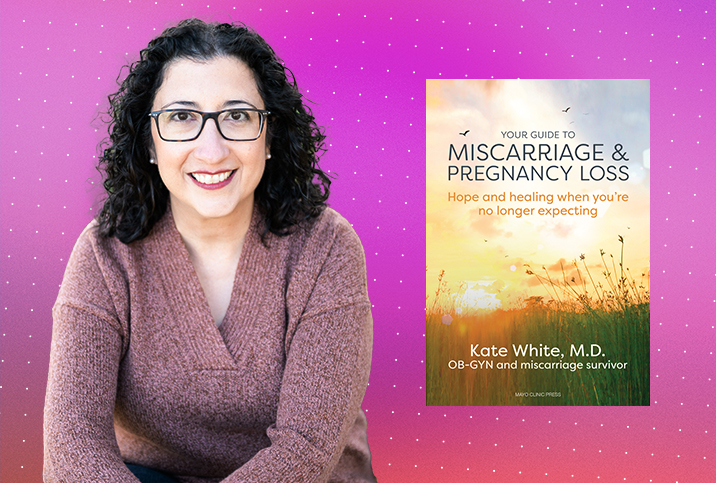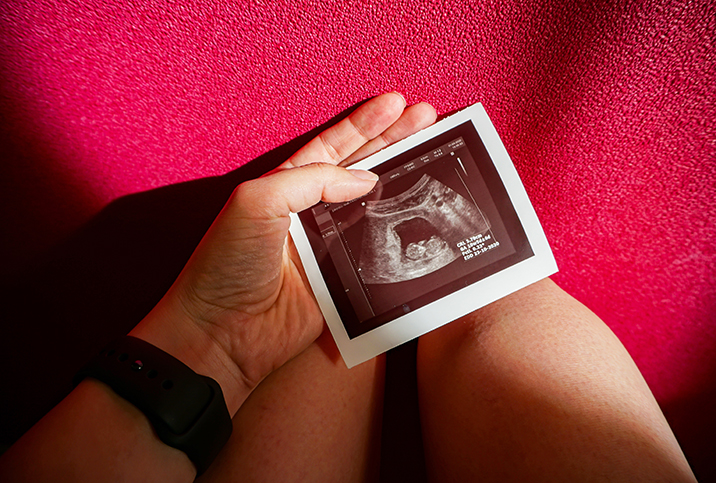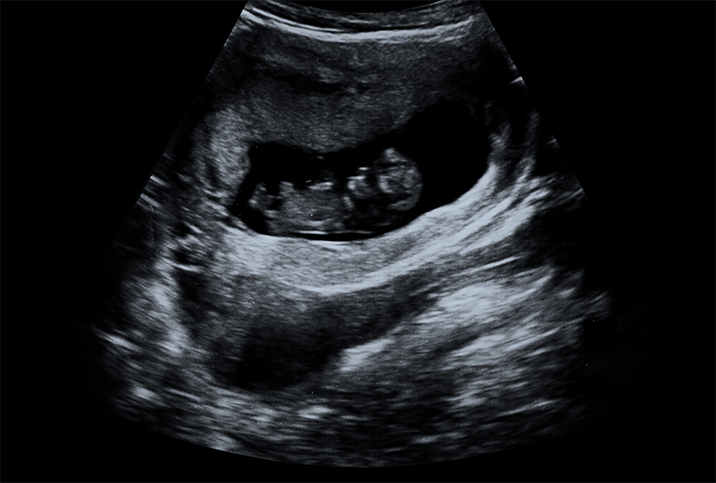Between the Pages: Guiding Women and Families Through Pregnancy Loss

Twenty-three million miscarriages occur every year worldwide, but while pregnancy loss, including both miscarriage and stillbirth, is common, it is not discussed openly, leading many women to feel shame and isolation in their time of grief.
In this exclusive interview, Kate White, M.D., an OB-GYN, miscarriage survivor and now author, discusses her first book, "Your Guide to Miscarriage & Pregnancy Loss: Hope and Healing When You're No Longer Expecting" (Mayo Clinic Press, October 2021). White is a practicing gynecologist, the vice chair of academics and director of the Complex Family Planning Fellowship at Boston Medical Center, and an associate professor of OB-GYN at the Boston University School of Medicine.
She tells us what she wishes she'd known during her own miscarriages, how medical personnel and the healthcare system can better support women through this journey, and how to care for yourself (or a loved one) after experiencing pregnancy loss. Lastly, White tells us what to expect in her next book, "Your Sexual Health: A Guide to Understanding, Loving and Caring for Your Body," coming out in May 2022 from Mayo Clinic Press.
What made you decide to write about miscarriage and pregnancy loss for your first book?
I listened to the advice "write what you know." The topic of miscarriage was the closest to my heart since I had been caring for people for 20 years with pregnancy loss and had experienced two losses of my own.
I wanted to pull together the medical knowledge I had learned as a physician with the emotional knowledge I had learned as a grieving patient and have them in one place. I knew my patients needed a resource to both get them through the loss and be with them on the road towards recovery...because it was the resource I wanted when I had my own loss, even as a doctor.
Why do you think miscarriage isn't widely discussed despite being so common, and what can be done to change that?
Many of us believe that if we read the pregnancy books and avoid eating and drinking the "wrong" things, and stay as healthy as we can, that we deserve to end up with a healthy pregnancy. Because we followed the rules, right?
But we can't control when a pregnancy ends, any more than we can totally control when one begins.
So when your pregnancy is lost, it can feel like the deepest betrayal by your body. And you may feel utterly broken and, on some level, ashamed. When you are feeling such crushing emotions, it can be hard to talk about your loss with anyone.
Consequently, many people don't share the story of their miscarriage with their friends or even family members. So even though almost 1 in 3 pregnancies are lost to miscarriage, most people don't realize how common it is. I'm so glad that public-facing people like Michelle Obama, Chrissy Teigen and Meghan Markle are bravely breaking the silence around pregnancy loss.
How can the healthcare system do a better job of guiding women through this experience?
The U.S. healthcare system needs an overhaul in how it treats people experiencing pregnancy loss. Too many people receive the diagnosis of a miscarriage in an emergency room.
Nearly half a million people a year in the U.S. come to an ER for bleeding in pregnancy, and about half of those pregnancies will end in a loss. A busy emergency room is not the ideal environment for a painful, private conversation. We need a better place to care for these patients.
Doctors are human, too, and it can be hard to deliver the bad news of a miscarriage to patients. So they too often focus on the logistics of treating the pregnancy loss and not attending to the emotional needs of the person going through it. Doctors and nurses need training in how to talk about miscarriage with patients. They need to offer more options for miscarriage management to patients. And they need to learn how to meet an individual patient where they're psychologically at, as a loss means different things to different people.
I hope that as more people come forward to talk about their miscarriage experiences, that the healthcare system will adapt to focus on what people need and not on what's convenient for doctors.
Who did you have in mind as you were writing this book?
I wrote this book because it's the kind of guide I wish I had when I experienced my losses. Even as an OB-GYN, I wasn't prepared for what the experience would be like. Through the book, I'm talking directly to people like me who are experiencing all the stages of loss, grief and recovery. They may be going through a miscarriage right now, or it may have been years ago and they're still healing.
I'm also talking to the people who care about them. It's often not just the pregnant person who experiences the miscarriage. Their partners get little to no attention from the medical team. No one checks in to see how they're doing. And partners, especially men, often feel pressured to be strong and supportive, and sometimes don't allow themselves to grieve. And kids and grandparents aren't immune to grief, either.
So we can't forget that it's often an entire family that is going through the pregnancy loss. And I hope my book speaks to them, as well.
What have you found to be most helpful during recovery from pregnancy loss?
People need to know that there is a community of others who have walked this road before you, and you can lean on them to help you recover. Start with your own close circle: the family you're born into and the family you've made—more of them than you realize have had a loss of their own.
Then there's a larger circle in your community: local support groups, social workers or grief groups at the hospital. And this is one of the healthiest uses of the internet; finding online support groups where you don't even need to leave your house to connect with others.
There's no spa day that's going to make you feel better. But taking care of yourself physically—getting enough sleep, hot showers, getting dressed every day—can help you feel better mentally.
And if it's a loved one going through a pregnancy loss, the best way to support them is to simply be there, by phone or in person, to give them whatever they need. It's not a problem you can fix or reassure away, but you can help them feel less alone.
What's the main point you hope readers take away from your book?
I want readers who have experienced pregnancy loss to understand that even though miscarriage is very common, it's not common for you. So, yes, it is a big deal.
And all kinds of ways of losing a pregnancy can be considered a miscarriage. If your pregnancy was in your fallopian tube or was a molar pregnancy or needed to be terminated because of a severe risk to your health...if it was a pregnancy you wanted, it's a pregnancy you can grieve.
We also don't "get over" a miscarriage. The loss is always with us, but we grow around our grief, and the days will start to get easier.
Can you give our readers a sneak preview of your next book?
This book is essentially all the secrets that your gyno wants you to know. Unlike my miscarriage book, this new one is much lighter in tone, with a little humor. I mean, we have to laugh at periods and sex sometimes, right? I hope this book helps the reader understand their body and lets them see their body in a way that leads to acceptance and even peace. After all, you only get one body, and it's your partner for life!


















